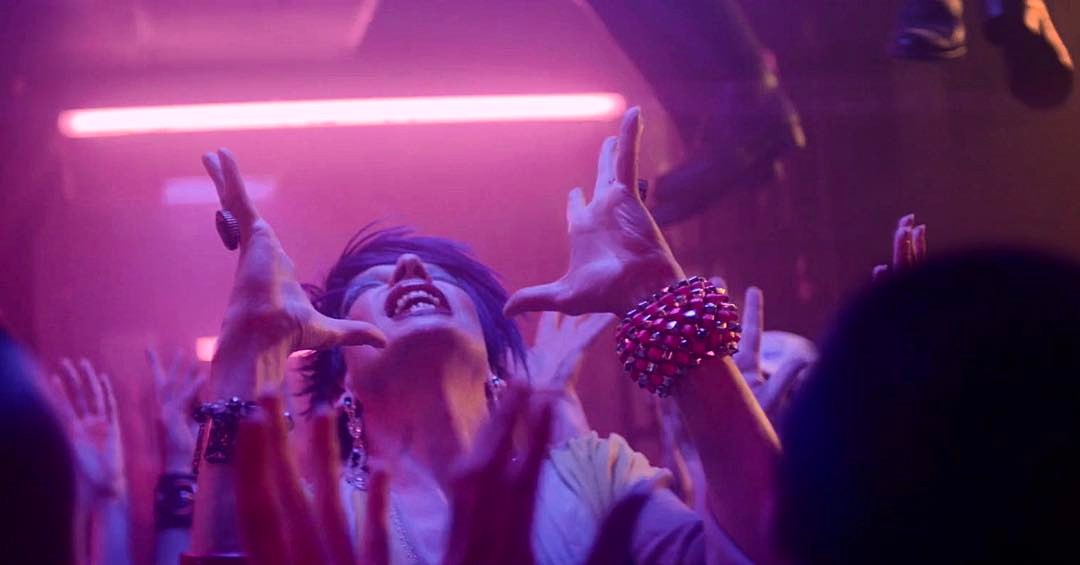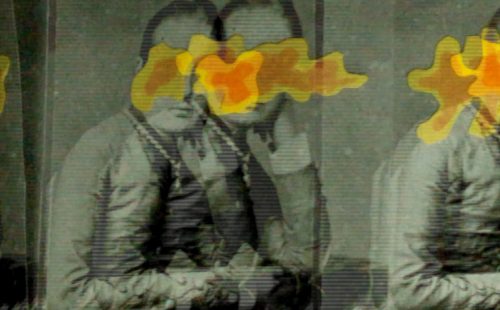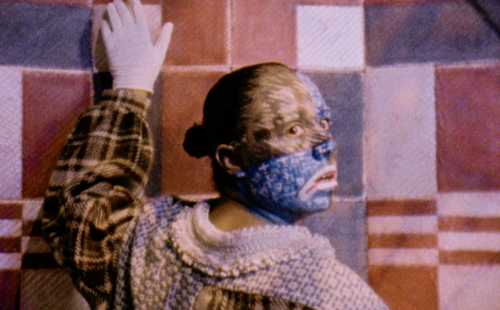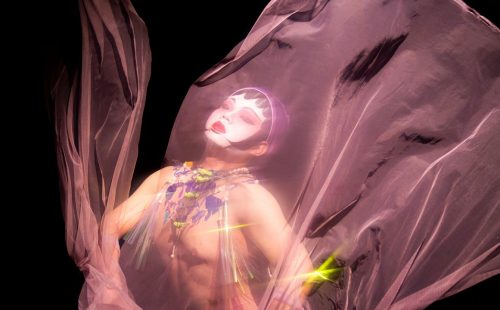

Both Sides Now 5 looks at the way in which artists and filmmakers are exploring Queer culture, using various film and video techniques, to examine aspects of Queer life in Hong Kong, China and the UK. Curated by videoclub and Videotage (Hong Kong).
Programme of films
Films from Hong Kong & China
Differences Do Matter, Anson Mak, 1998, 3’00”
Teach German with Petra Von Kant, Ming Wong, 2017, 8’00”
The Drum Tower, Fan Po Po, 2016, 17’52”
A Glass of Water, Kayla Wu, 2019, 4’30”
Films from UK
Handclap/Punchhole, Charlotte Prodger, 2011, 9’46”
Something Said, Jay Bernard, 2017, 7’33”
God is Watching, Matt Lambert, 2017, 3’24”
Where We Are Now, Lucie Rachel, 2016, 9’29”
Total programme run time: 63 mins
See pdf of programme for more details: BSN5 programme booklet
BSN5 screening trailer from videoclub on Vimeo.
Venues and dates
Fabrica Gallery (Brighton)
Date and time: Thursday, 25 April 19 – 7:15pm doors and bar, 7:30pm screening
Price: £3
Address: Fabrica, Duke Street, Brighton BN1 1AG
Web / contact / tickets: www.fabrica.org.uk / 01273 778646 / Book tickets (also available on door)
Royal College of Art (London)
Date and time: Wednesday, 1 May 2019 – 6:30pm
Price: FREE – no booking required
Address: Gorvy Lecture Theatre, Dyson Building, Riverside, 1 Hester Rd, London SW11 4AN
Vivid Projects (Birmingham)
Date and time: Saturday, 25 May 2019 – Time 7pm
Price: FREE – no need to book
Address: 16 Minerva Works, 158 Fazeley Street, Birmingham B5 5RS
Web / contact: www.vividprojects.org.uk / info@vividprojects.org.uk
Phoenix Cinema and Arts Centre (Leicester)
Date and time: Friday, 28 June 2019 – 8pm
Price: FREE – no need to book
Address: 4 Midland Street, Leicester LE1 1TG
Web / contact: www.phoenix.org.uk / 0116 242 2800
Curatorial statement
British colonialism widely affected legal discrimination against LGBT people – specifically homosexual men (just as in Britain, female homosexuality was not recognised in colonies). As in many colonies, laws criminalising male homosexuality were slow to change in Hong Kong, with decriminalisation taking until 1991, as opposed to 1967 in the UK. In 2019, laws regarding equality for LGBTQ+ people are almost equal. Though reception to Queer people in the UK and Hong Kong varies widely geographically, generationally and socially. With the rise of right-wing sentiments globally, the acceptance Queer people have enjoyed feels like it is in descent.
In response to post-colonialism and the rise of right-wing opinions, we have curated this programme to show a range of artworks that explore Queer identity and culture. Filmmakers from both sides explore aspects of LGBTQI+ life – with artists from both the UK and Hong Kong making work that reflects upon Queer identity, life and creativity.
Ever since video art first appeared as a medium, artists have been using portable cameras to explore the subversive potential of video and challenge mainstream discourse about identities. In Hong Kong, the late 1980s and 1990s witnessed a growing interest among avant-garde artists, who used video to claim a queer space amongst the mundane social codes. They disrupted the male hero’s central status in mainstream cinema’s narrative. They have also recounted unspoken stories and given voice to the marginalized in a time when homosexuality and many other identities were considered taboo. These artists have sought to complicate the understanding of what it means to be taken-for-granted and have reimagined the body, society and culture as a constant flux, which has the potential to unpack norms and open society to transformation. Avant-garde and video art go hand-in-hand with the emergence of the feminist movement and the growing public visibility of the demand for LGBT rights.
In the last few decades, many societies have witnessed a radical change in promoting a diverse spectrum of non-normative sexual and gender identities. Queer communities, whose lives are organized around constant social alienation and exclusion, have evolved into a relatively more open community. On one hand, many societies are progressively creating more liberal laws, such as legalizing same-sex marriage. The thriving gay bar scene, booming rainbow industry and increasingly popular LGBT-themed movies have built a stronger community and increased inclusivity for spectrums of sexual practices and gender. On the other hand, individual freedom and promises of diversity are increasingly fashioned by neoliberal discourses. The former border-crossing practices, fluid identities and peculiar imaginations are now commercialized, marketized and normalized. Almost every financial corporation has joined hands in sponsoring pride parades. In China, the LGBT market places is valued at approximately $300 billion dollars. The way that gay and lesbian people live is increasingly mediated by the new order of cultural economy. Queerness has been redefined and contradicted by the neoliberal reality. Apart from these changes, in many parts of the world, a parallel rise in violent homophobia has been promoted by right-wing extremists. Anti-LGBT abuse and victimization remains frequent. Queerness in our time has revealed that power dynamics appear to be shifting, complex and yet contradictory. How has queerness, once considered marginal or subversive, played a role in the radically shifting figurations of global politics?
Both Sides Now 5 attempts to reconsider queerness by looking into historical perspectives and its relevance to the present. Through this collection of films, we aim to investigate personal experiences and problematize the various notions of “queer” from local and global perspectives.
– Isaac Leung (Videotage) & Jamie Wyld (videoclub)
Both Sides Now is a tactical program that uses film and video to explore culture and society between different nations, the UK, China and Hong Kong, and beyond. It is a project developed in collaboration between videoclub and Videotage (Hong Kong).







